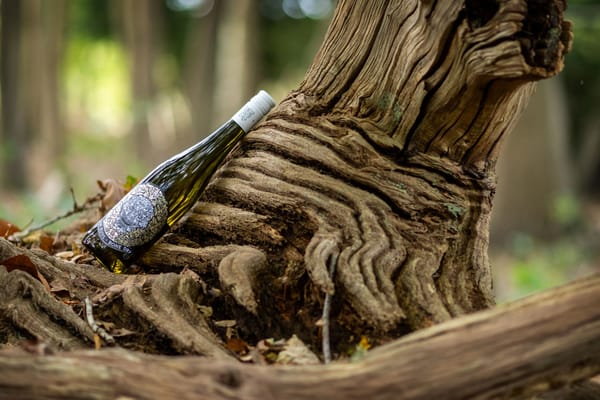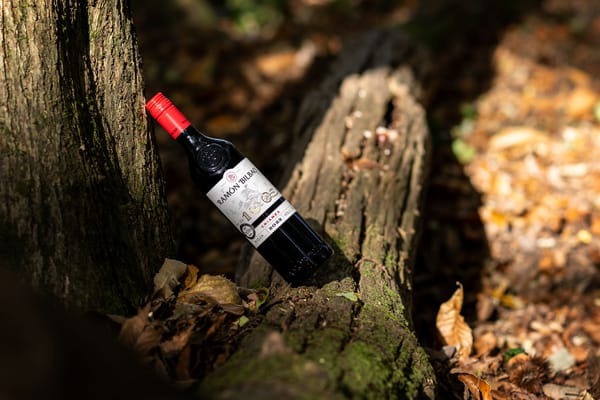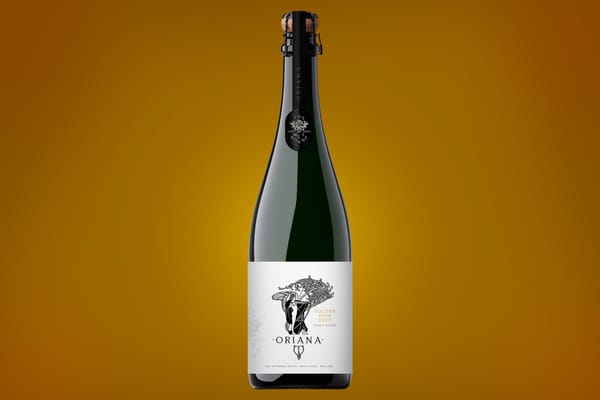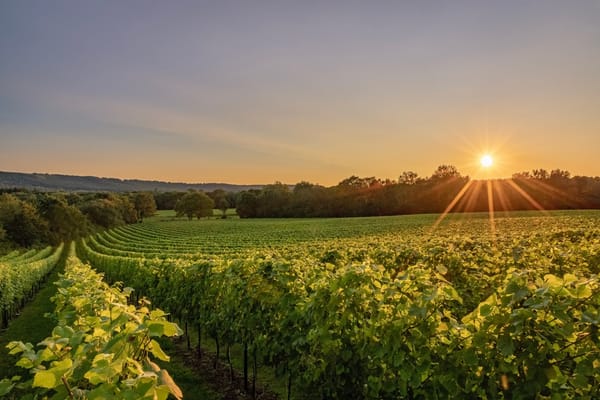Exton Park
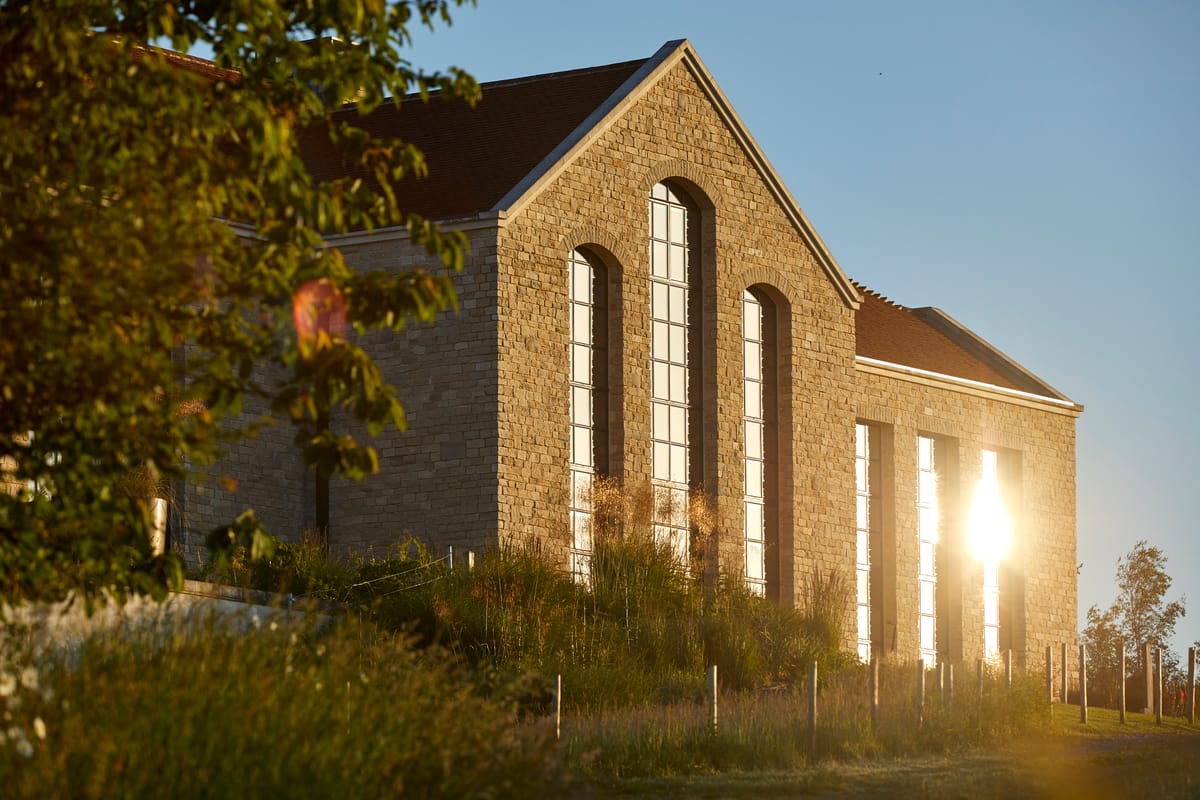
Exton Park sits high on the rolling chalk slopes of Hampshire’s South Downs, an estate that has quietly built a reputation as one of England’s most forward-thinking sparkling wine producers. Established in 2003 by the late Malcolm Isaac MBE, a man better known for founding the Vitacress salad empire, the vineyard was created with the same spirit of curiosity and precision that defined his career. Today, Exton Park combines meticulous vineyard management, a pioneering approach to sustainability, and a deep respect for the land’s natural rhythm.
From its regenerative soil practices and wildflower meadows to experimental projects like ageing bottles beneath the sea, the estate is a model of modern English winemaking rooted in innovation and care. Under the direction of Vineyard Director Fred Langdale, Head Winemaker Corinne Seely, and CEO Robin McMillan, the team continues to challenge convention while maintaining an unwavering focus on quality.
In this interview, members of the Exton Park team share insight into their philosophy, from soil health and vine age to the artistry behind wines like the Cuvée M. Isaac and the now-legendary “60 Above & 60 Below” series, offering a fascinating glimpse into one of England’s most distinctive vineyards.
Answered by Fred Langdale, Vineyard Director
Have you grubbed up any vineyards and replanted with a different variety or clone?
Yes, we have grubbed up 0.75 hectares. We plan to plant a cover crop to add organic matter and nitrogen to the soil while also tackling compaction. We will replant over the next two years once we have decided on a variety.
Can you please tell me about the Bio Diversity in your vineyards and how it works as a whole in unison?
Good biodiversity will allow the soil ecosystem to thrive which, in turn, allows the vines to thrive. The many different species of plants on the vineyard attract a variety of insects which benefit the biodiversity and health of vines naturally and means less manual intervention is required.
What steps do you take to ensure the health of older vines, and how do they contribute to the character of your wines?
We prune the vines carefully regardless of age, however, the older vines naturally have less fruit. Our aim is to achieve ‘fewer, bigger, better’ on these vines so bigger bunches but less of them, so we have a higher concentration. The perception is generally that the older the vine, the more superior the flavour. At Exton Park, we do produce stunning wines from the oldest vines on the estate, but I would also say that all vines, regardless of age, have their own qualities for winemaking if managed effectively through the growing season.
How do you approach the challenge of global warming being based in a relatively hot cold region?
In the last ten years, Exton Park has had more growing degree days/sunlight hours than the previous 10 years. In some years we get longer growing seasons but frost is more of a challenge with earlier bud burst in April.
How do you decide the ideal planting density in your vineyard, and what impact does it have on the quality of your grapes?
We have 4 planting densities throughout the 60 acres. Row widths are 2m, 2.10m, 2.20m, 2.40m. Personally, I favour the 2.4m row width which has around 3,500 vines per hectare. I think this gives the vines more sunlight, less competition from other vines and more air flow. There is also less risk of mechanical damage.
How do you maintain a healthy microbial population in your vineyard soils, and what benefits does this bring to your vines?
We run the vineyard with a regenerative soil management approach. No weedkiller. No cultivation. We add organic fertilizer and graze the vineyard with sheep. We grow cover crops in between and under the vines. We have no bare soil. All of this contributes to trying to produce the best biodiversity which impacts soil and vine health overall.
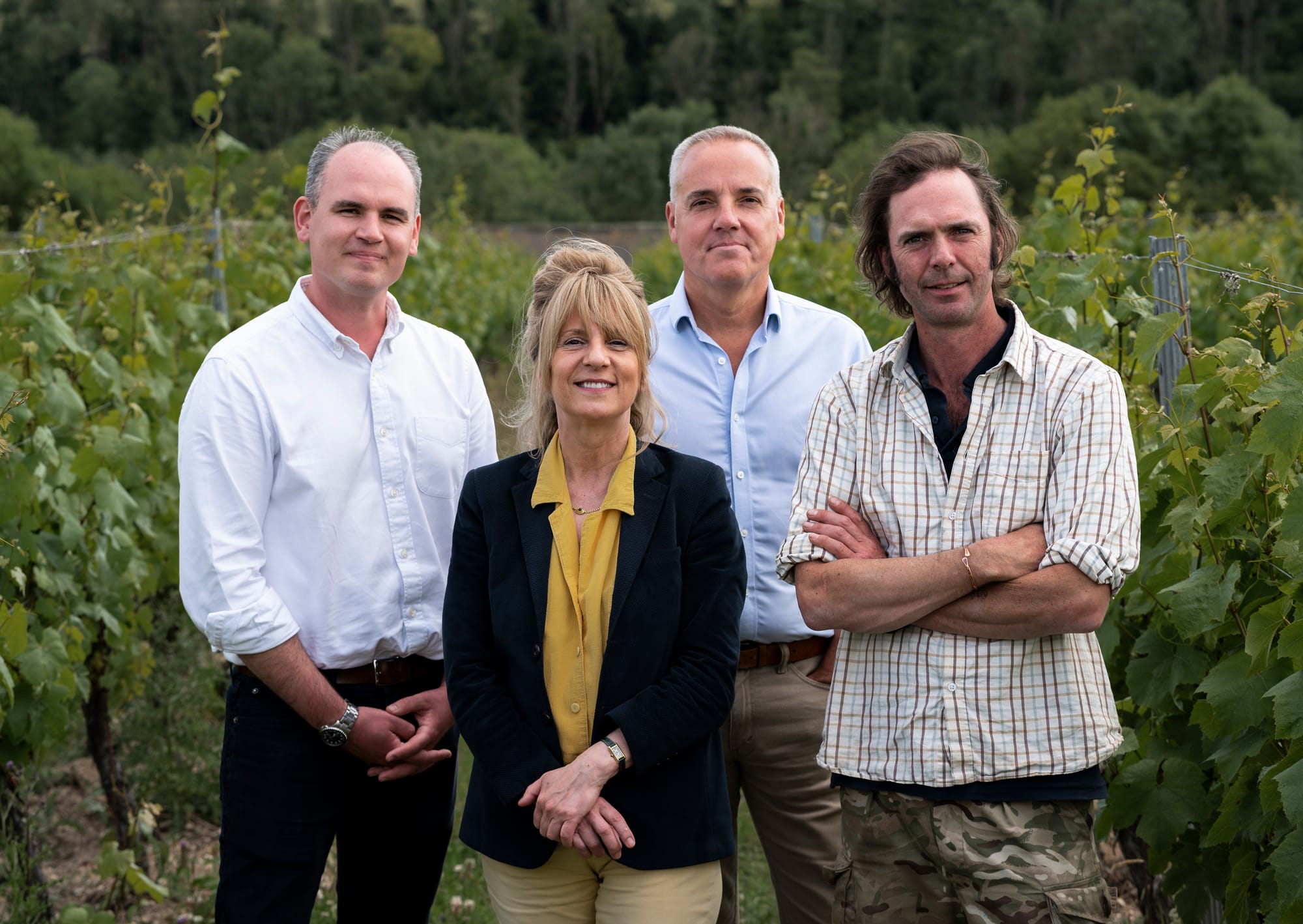
Answered by Corinne Seely, Head Winemaker
Why did you choose the 2014 vintage for the 60 Above & 60 Below?
The 2014 vintage was a standout year at Exton Park with ideal ripening conditions and an Indian summer. It was also the first year that the winery at Exton Park was complete which presented a fantastic opportunity to experiment with the generous yield of premium quality Chardonnay we harvested that year.
What makes the Pinot Meunier Rosè so difficult to make and perfect?
I like to say that the Pinot Meunier is made for England or the opposite round as it flourishes here in a unique way. However, this variety of grapes behaves like a naughty teenager. To achieve perfection, you really must take care of it thoroughly throughout the whole season. It is delicate, and to reach the distinctive colour in the context of the English weather can be very challenging!
What is your strategy for barrel ageing? How do you decide on the percentage of new oak versus older barrels?
Our strategy for barrel ageing differs across our portfolio of wines. On our Reserve Blends, which is our core range, we only use a little barrel ageing on our RB45 Blanc de Blancs. We like to keep intervention minimum so the wines are a true reflection of our chalky soil.
For our Limited Release wines, we experiment and innovate so the barrels are there to support these projects. We only use aged oak which is more effective for us and any ageing is managed with a lot of care and attention. Base wines, particularly those on lees, can really benefit from barrel ageing. Our Cuvée M. Isaac ‘BBB’ spent three years in barrels before being bottled which created a magnificent wine. There are barrels that contain Chardonnay at Exton Park that has been ageing for more than 10 years!
How do you decide which blocks to designate for each wine?
Long walks before harvest with the Vineyard Manager. That is the key. To look around and taste the bunches day after day. Unfortunately, it cannot be decided in advance, but we have a very good understanding of the vines, the fruit and the distinctive flavours each of the plots has the ability to offer.
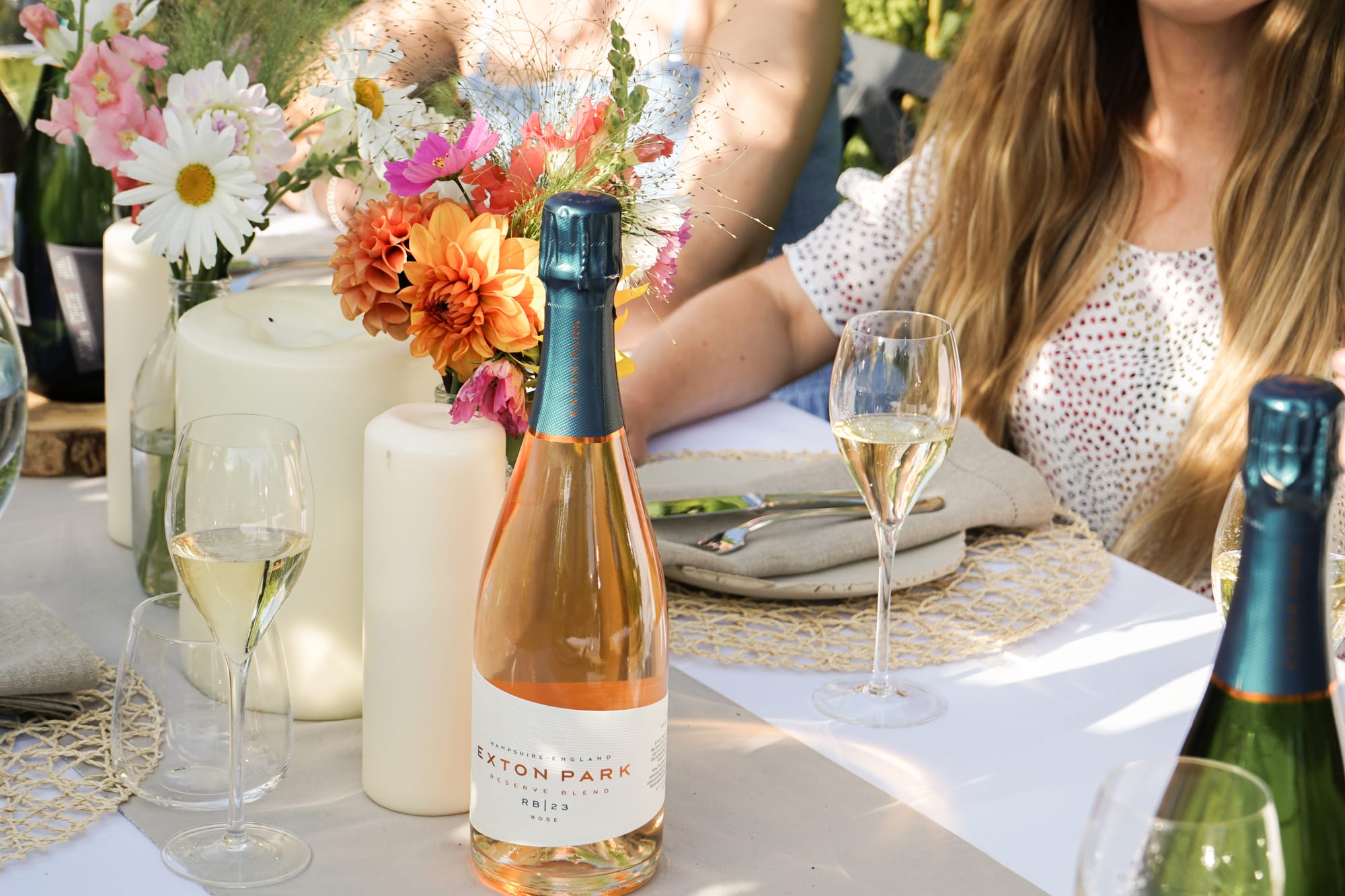
Answered by Caroline Brosnan, Marketing Manager
Can you please tell me about the Cuvée M. Isaac Blanc de Blancs Vintage 2015, and what makes it so special?
This is the first wine released under our most prestigious category, the Cuvée M. Isaac, dedicated to our late founder Malcolm Isaac MBE. Barrel-aged Before Bottling – or the ‘BBB’ as we like to call it, spent 3 years in aged oak barrels before being bottled. Made from 100% Chardonnay, the unique length of barrel ageing has helped create a wonderful creamy vanilla richness. It offers impeccable balance and an elegant and confident finish.
Your 60 Above & 60 Below sounds very exciting. Can you please tell us a little more about this?
In 2017, Exton Park embarked on a voyage to uncover the true potential of sea-ageing for English sparkling wine. A parcel of our Blanc de Blancs Vintage 2014 was aged in our temperature-controlled cellar, 60 meters above sea-level.
In contrast, 180 bottles of the same wine were submerged 60 metres below sea-level off the coast of Brittany in a controlled under-water environment for 12 months. The constant movement and pressure under the sea presents an opportunity for the wine to evolve differently which was something we were keen to test.
Being an English producer also meant that we didn’t face the same restrictions that champagne does regarding bottles being disgorged before they go under water. We were able to submerge our bottles under cap on lees which adds a further dimension to the experiment.
The two sibling wines were released side by side in 2023 which have now sold out. We are already planning the next chapter of this exciting journey with the launch of our second sea-aged pack – the Blanc de Noirs 2014 – this autumn.
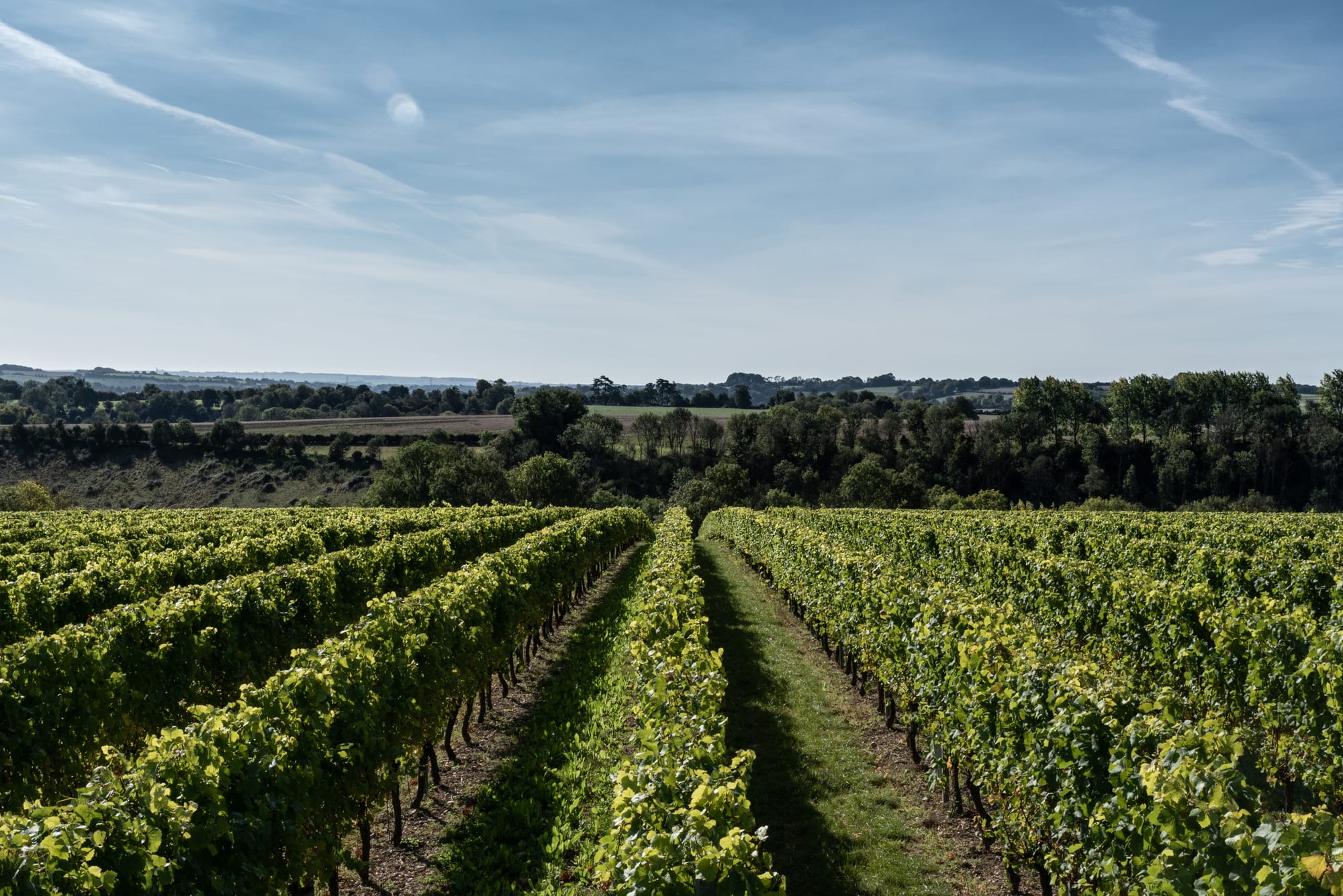
Answered by Karl McCulloch, Sales Manager
How did your wines get listed at Adam Handlings restaurants and what did it feel like when you first saw them on the wine list?
Having always focused on the premium on trade, we’ve always tried to work with the best restaurants and the best chefs. Nadia Khan (Head Somm @ Frog) tasted our wines and fell in love with our RB23 Rosé in magnum format. Our wines were very well received leading to a collaboration on the own label range with bespoke wines and labels. These are now served across the Adam Handling group (Frog, Loch & Tyne, Ugly Butterfly, Tartan Fox) by the glass and in bottle.
As with all new listings, it’s always very satisfying and a real celebration of our efforts. It means a lot for a small team like ours at Exton Park.
What local restaurant would you recommend readers visit?
Pulp Negro, Alresford
Which of your wines would you pair with their signature dish?
Our RB23 Rosé is served by the glass and I would suggest pairing with the large Scottish langoustine cooked in oloroso sherry butter.
Their menu changes weekly and it’s always the best seasonal produce available cooked by the owner/head chef Andres.
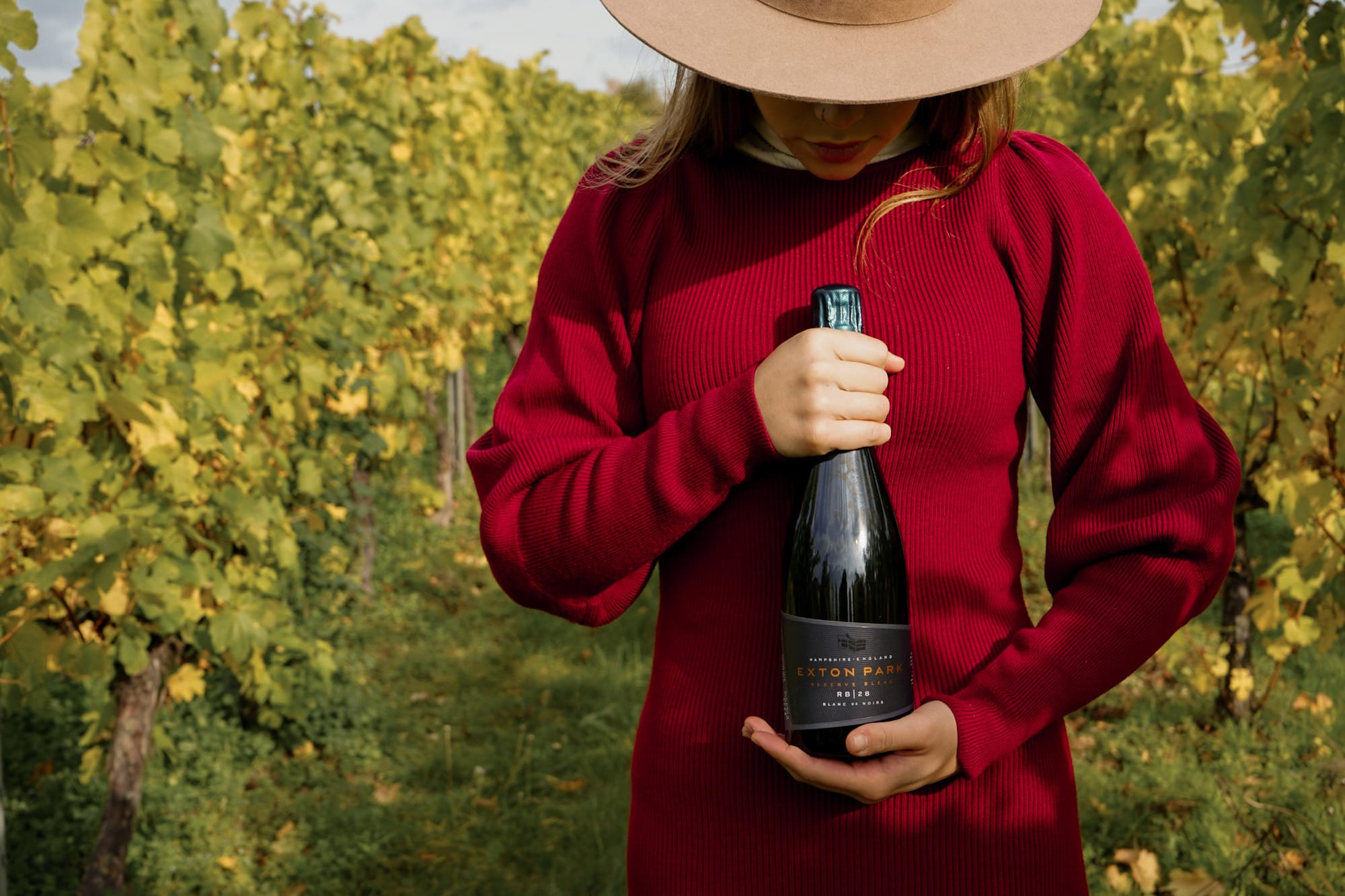
Answered by Annette Street, Tour Guide
What are some of the most common reactions or surprises visitors have when they first visit Exton Park?
The majesty and luxurious scale of Exton Hall with stunning panoramic views over the whole estate is always a surprise
Impressed to learn of EPV’s autonomous grower-producer status, everything from grapes to bottle to distribution managed independently on this private estate.
The excitement surrounding the freedom of innovation and experimentation amongst English/UK based winemakers.
Fascination with long aged traditional method wines made from entirely reserve wines from a library curated since 2011.
Excited to learn of unprecedented English experiment to age wines 60m above and 60m below the sea, producing an exclusive tasting prestige duo, with authentic barnacle covered bottles from the sea.
The benefits of woolly visitors in winter and symbiotic relationship with local shepherdess.
The magic of yellow rattle and its flower meadow enhancing properties; the cover crops and importance of biodiversity.
Impromptu drone footage of visiting groups - always a surprise and delight!
Do the tour guides have a favourite story or piece of history that they love sharing with guests?
The phenomenal, exceptional entrepreneurial career of Malcolm Isaac MBE, a visionary, an agronomist, entrepreneur and exceptional businessman. From being Nuffield Agricultural college’s first student awarded a scholarship to USA; from humble watercress beds in rural Hampshire to creating the international packaged salad Vitacress empire, employing circa 1000 staff from UK to Spain, Portugal and Kenya; from a viticultural investment at the age of 79, when most would be retiring to establishing a specially selected team (winemaker and viticulturist) resulting in production of world class award winning traditional method wines from sustainably certified vines.
Reference to the lower vineyard plot of Meonwarra, so named after 7th century pagan tribe encamped on the River Meon, hinting at rich dark history in area in bygone days.
What is the most unusual or interesting question a visitor has ever asked during a tour?
They wondered what the Meonwarra tribe (7th centre pagans who inhabited area) had to drink back then?
When are English producers going to start digging cellars for storage under the chalk like the Champenois? Why aren’t they?
Is there a concern for security for wines aging under the sea and do we have special divers (like Navy seals) to check on the crates of bottles?
Are there any artifacts, architectural features, or historical details that guests are particularly drawn to?
A bowl of collected artefacts gathered from lowered vineyard plots at time of planting, including a bullet, common cannon shot, ancient coins, thimbles, silver buckle, crockery shards …
What is the most memorable or touching experience you’ve had with a visitor during a tour?
One guest had written a specialist thesis on northern hemisphere barnacles and could not wait to identify the species on the sea-aged bottles, the wine tasting was totally secondary.
One guest asked if I was available to plan and research his wine tour to Latin America, as he needed an expert.
What is the most frequently photographed spot on the estate, and why do you think it captures visitors' imaginations?
The viewpoint at the end of Home Field looking over the Meon River Valley, and ancient village of Exton, with rolling verdant hills beyond the lower vineyard plots (Battlefield, Chestnut Henge, Meonwarra)
The wide open landscaped terrace of Exton Hall, makes an impressive backdrop to group photographs.
Are there any hidden or lesser-known features of Exton Park that visitors are always surprised to discover?
The extent of thoughtfulness and resourcefulness in planting the wild flower meadows, gathering seeds from other parts of the estate, the discipline of always working with nature.
Do visitors ever share personal stories about why they chose to visit you? What stands out to you?
Sometimes it is a first visit to an English vineyard and the Hampshire location is researched after only having encountered the wine brand over a special memorable dinner.
What is the most unique or unexpected piece of feedback you’ve received from a visitor?
That they will never look at wine shelves in the same way again and have a new appreciation of the skill and expertise of traditional method wine production in England.
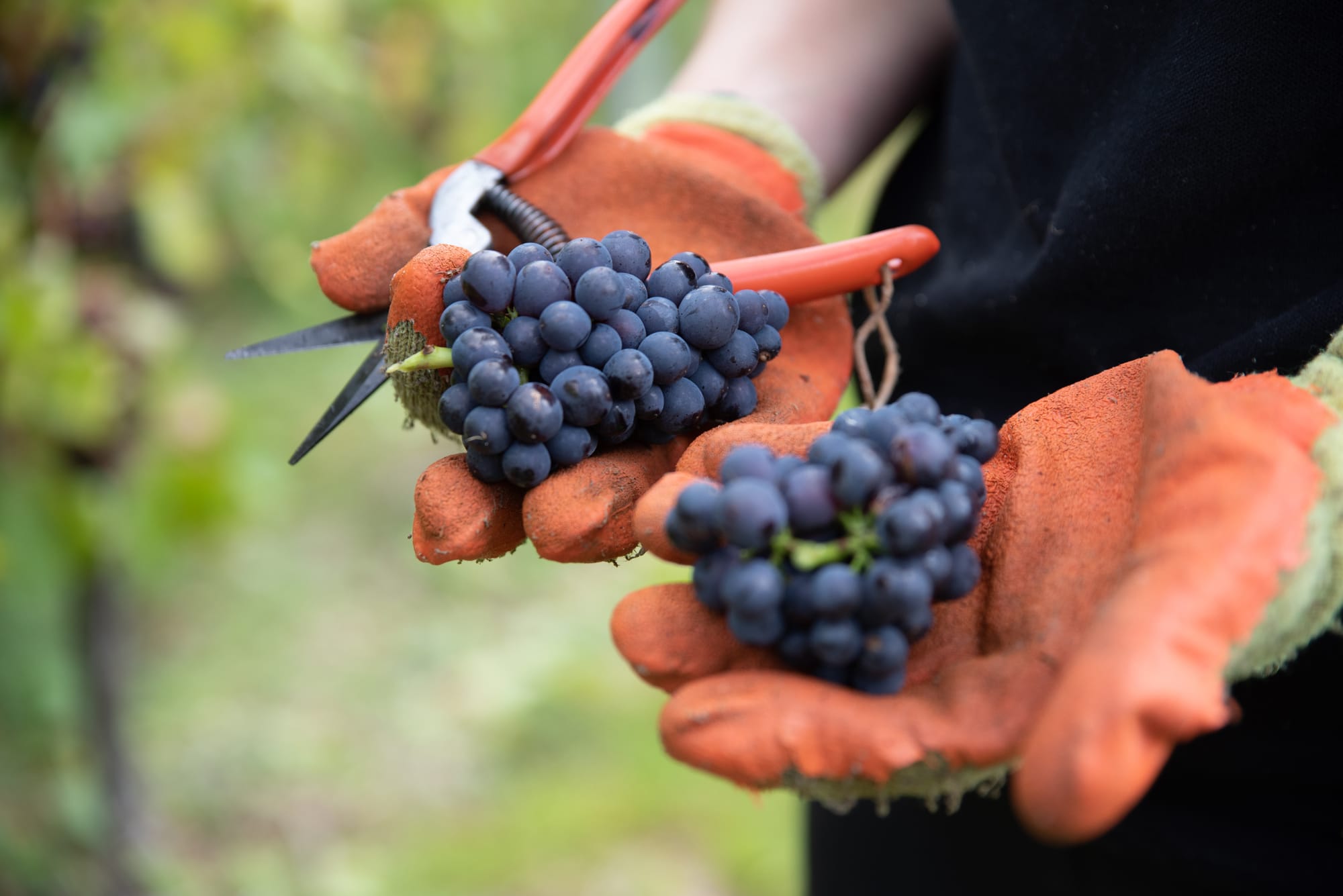
Answered by Robin McMillan, CEO
How has your style evolved in style over the years and why?
The main purpose of our Reserve Blend system is to provide consistency, quality and complexity in our core range of wines year-after-year which is achieved through our library of reserves which has been building since 2011. Where we have seen a real evolution on style is through our Limited Release wines that make up approximately 15% of our production. These have allowed us to innovate and experiment to push the limits of wine making in England and how it is constantly evolving. These innovations include the first 100% Sparkling Pinot Meunier in England, the first wines to be aged under the sea (60 Below), and the first wines to receive 3 years of barrel ageing (our BBB).
Which wines of yours do you feel need to be talked about more often?
Our under the sea wines, truly innovative, ahead of their time and an on-going journey.
If a visitor could only take away one story, memory, or impression, what do you hope it would be?
That we are not bound by convention, the wines we make, the Hall where we welcome guests, even our culture and business model are all differentiating to our competitive set. You won’t find another vineyard in the UK like Exton Park.

